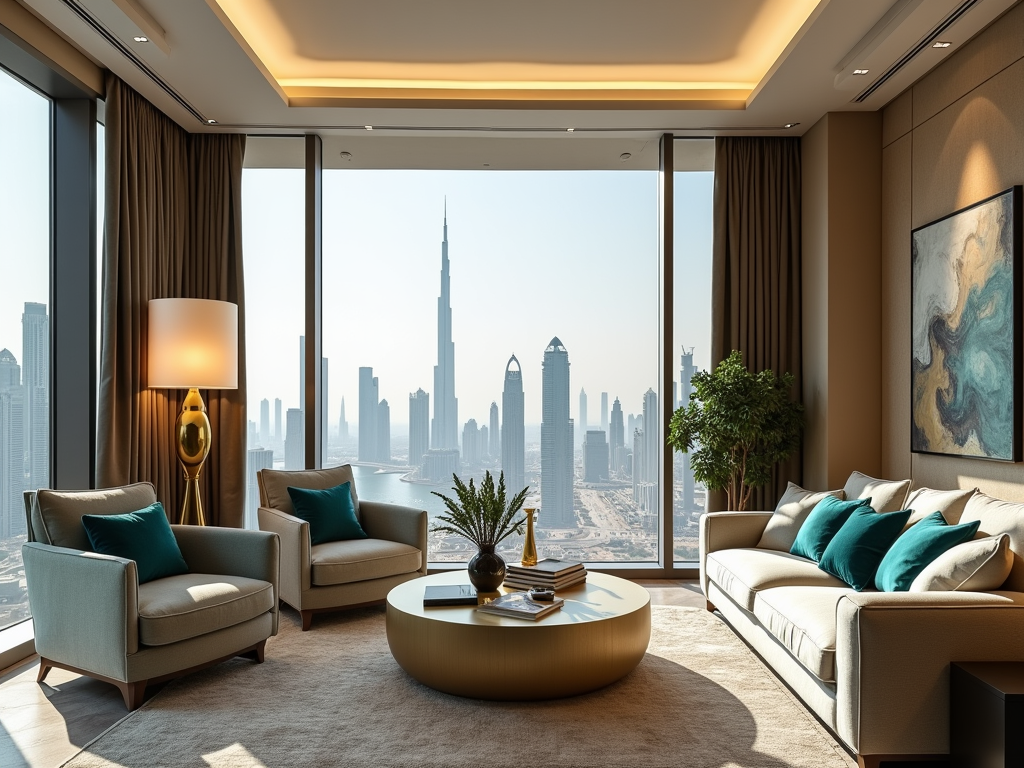Dubai’s real estate market is significantly influenced by global financial markets, reflecting broader economic trends and shifts in investor confidence. As a major international hub, Dubai attracts a diverse range of investors, both local and foreign, who are often swayed by global economic conditions. Factors such as interest rates, currency fluctuations, and geopolitical stability play critical roles in shaping the dynamics of Dubai’s real estate sector. This interplay is especially evident in times of economic downturns or booms, which can either stimulate or suppress property demand in the city. Understanding these connections can provide valuable insights for potential investors and stakeholders in the Dubai real estate landscape.
Global Economic Indicators and Their Impact

Global economic indicators serve as essential barometers in gauging the health of the financial markets and consequently affect Dubai’s real estate scene. Key indicators include GDP growth rates, inflation rates, and unemployment figures, which send ripples through the market in various ways. When global economies are strong, demand for luxury real estate in Dubai increases, often leading to a rise in property prices. Conversely, during economic downturns, as seen during the 2008 financial crisis, demand can plummet, resulting in stagnation or declines in property values. Here are some notable indicators affecting Dubai’s real estate:
- Global GDP Growth
- Inflation Rates
- Interest Rates
- Foreign Direct Investment (FDI)
- Consumer Confidence Index
The Role of Foreign Investment

Dubai has positioned itself as a key destination for foreign investors, and the global financial climate often dictates their level of interest. When the global economy flourishes, high-net-worth individuals and institutional investors are more inclined to purchase properties in Dubai, particularly in luxury segments. Furthermore, favorable currency exchange rates may enhance Dubai’s attractiveness for foreign buyers, leading to increased transactions and developments. However, when the global market faces uncertainty, such as during trade wars or pandemics, foreign investment may decline, causing ripple effects in property demand and prices. The impact of foreign investment can be summarized through these key points:
- Increased property purchases during economic booms.
- Investment diversification strategies prompting offshore investments.
- Currency exchange advantages boosting foreign purchasing power.
- Potential decline in purchases during financial instability.
- The role of government incentives attracting global investors.
Interest Rates and Financing Dynamics
Interest rates, governed by central banks globally, play a crucial role in shaping the real estate market in Dubai. Lower interest rates typically encourage borrowing, which can lead to increased real estate investment and purchasing activity. This dynamic is particularly beneficial for both residential and commercial property sectors, facilitating higher sales volumes and development projects. On the other hand, rising interest rates can deter potential buyers and investors, making financing more expensive and potentially leading to a slowdown in property transactions. The effects of interest rates include:
- Increased borrowing as interest rates decline.
- Potential investor hesitance amid rising borrowing costs.
- Impact on rental yields due to changing mortgage rates.
- Influence on construction financing for new projects.
- Consumer sentiment affected by interest rate fluctuations.
The geopolitical landscape influences Dubai’s real estate market in profound ways. Stability in the region fosters confidence among investors, often leading to increased investments in property and infrastructure. Conversely, geopolitical tensions or instability can create hesitancy among potential buyers and investors, stifling market growth. Events such as conflicts, political changes, or international sanctions can have immediate and long-lasting effects on property values and the overall market environment. The interplay between geopolitical stability and market sentiment can be distilled into several key points:
- Stable political climate enhances investor confidence.
- International conflicts may drive investment to safer markets.
- Government policies and regulations affecting foreign direct investment.
- Regional partnerships and agreements fostering economic growth.
- Media portrayal of geopolitical events influencing market perceptions.
Conclusion
In conclusion, the real estate market in Dubai cannot be viewed in isolation; its dynamics are intricately linked to the broader landscape of global financial markets. Factors such as economic indicators, foreign investment flows, interest rates, and geopolitical stability all play critical roles in shaping investor behavior and property trends in Dubai. For potential investors, understanding these interconnected elements is essential in making informed decisions and navigating the complexities of this vibrant market. As Dubai continues to evolve as a global powerhouse, the relationships with global financial markets will remain crucial in determining its future in the real estate sector.
Frequently Asked Questions
- What factors primarily influence Dubai’s real estate market?
Global economic indicators, foreign investment, interest rates, and geopolitical stability are the main factors affecting the market. - How does foreign investment impact Dubai’s property prices?
Foreign investment often drives up property demand and prices, especially in luxury segments, during strong global economic conditions. - What role do interest rates play in real estate transactions?
Lower interest rates typically encourage borrowing and increase buyer activity, while higher rates can deter investment due to increased financing costs. - Can geopolitical events affect property investment in Dubai?
Yes, geopolitical stability fosters confidence in investment, while instability can lead to hesitancy and reduced investment activity. - Is Dubai’s real estate market attractive for foreign investors?
Yes, Dubai remains highly attractive due to its strategic location, tax advantages, and diverse investment opportunities.
